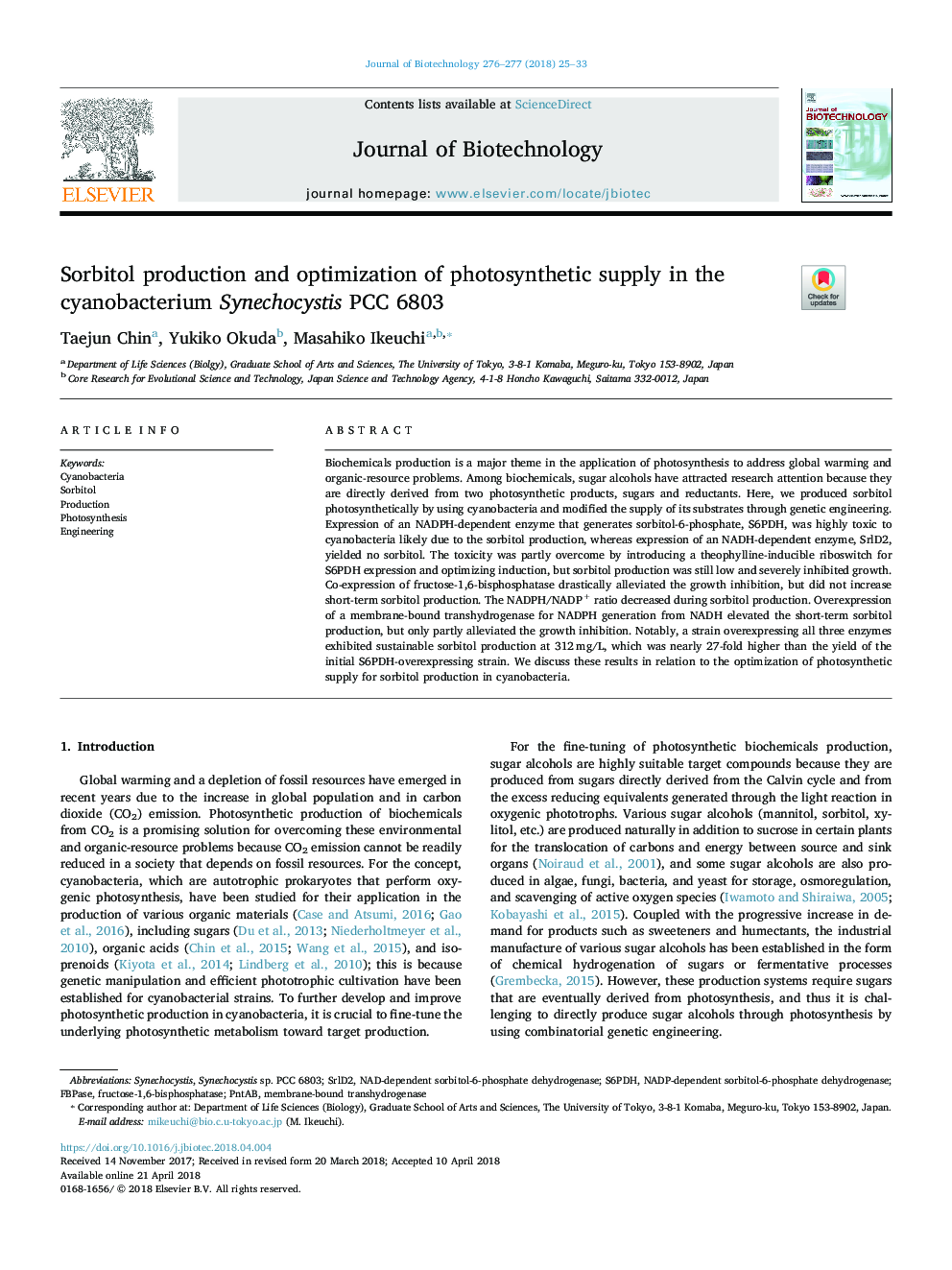| Article ID | Journal | Published Year | Pages | File Type |
|---|---|---|---|---|
| 6490297 | Journal of Biotechnology | 2018 | 9 Pages |
Abstract
Biochemicals production is a major theme in the application of photosynthesis to address global warming and organic-resource problems. Among biochemicals, sugar alcohols have attracted research attention because they are directly derived from two photosynthetic products, sugars and reductants. Here, we produced sorbitol photosynthetically by using cyanobacteria and modified the supply of its substrates through genetic engineering. Expression of an NADPH-dependent enzyme that generates sorbitol-6-phosphate, S6PDH, was highly toxic to cyanobacteria likely due to the sorbitol production, whereas expression of an NADH-dependent enzyme, SrlD2, yielded no sorbitol. The toxicity was partly overcome by introducing a theophylline-inducible riboswitch for S6PDH expression and optimizing induction, but sorbitol production was still low and severely inhibited growth. Co-expression of fructose-1,6-bisphosphatase drastically alleviated the growth inhibition, but did not increase short-term sorbitol production. The NADPH/NADP+ ratio decreased during sorbitol production. Overexpression of a membrane-bound transhydrogenase for NADPH generation from NADH elevated the short-term sorbitol production, but only partly alleviated the growth inhibition. Notably, a strain overexpressing all three enzymes exhibited sustainable sorbitol production at 312â¯mg/L, which was nearly 27-fold higher than the yield of the initial S6PDH-overexpressing strain. We discuss these results in relation to the optimization of photosynthetic supply for sorbitol production in cyanobacteria.
Keywords
Related Topics
Physical Sciences and Engineering
Chemical Engineering
Bioengineering
Authors
Taejun Chin, Yukiko Okuda, Masahiko Ikeuchi,
